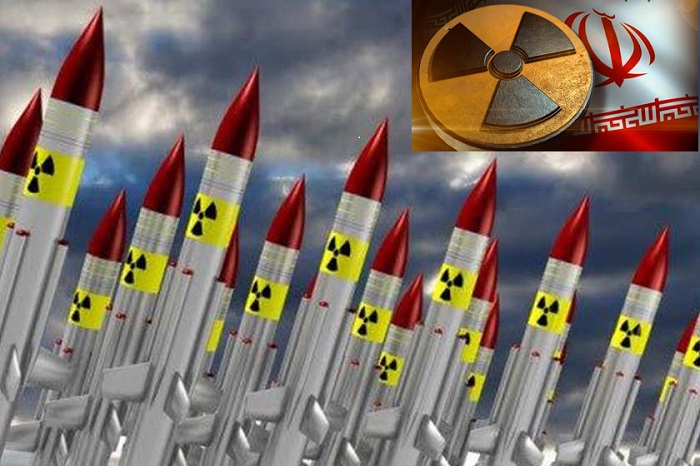
The Iran Regime took the final step away from the JCPOA; it will remove limits on centrifuges, uranium enrichment, and nuclear research and development.
On Sunday, January 6, 2020, Iranian regime President Hassan Rouhani announced in a statement that the clerical regime would take the fifth and final step in walking away from its commitments under the 2015 Joint Comprehensive Plan of Action (JCPOA), informally known as the Iran nuclear deal.
The final step away from the JCPOA will remove limits on centrifuges, uranium enrichment, and nuclear research and development.
A Flawed Deal
The JCPOA set limits on the regime’s nuclear program in exchange for an end to sanctions that were imposed after MEK Iran members uncovered evidence of the regime’s secret nuclear program. The regime began abandoning its commitments to the JCPOA in response to the U.S. decision to withdraw from the nuclear deal in 2018 after finding evidence that the Iranian regime was circumventing the requirements of the agreement and continuing to develop its nuclear and ballistic missile program. The United States reinstated pre-JCPOA sanctions and strengthened them, hobbling Iran’s oil industry.
#Iran Mullahs never stopped their #nuclearweapons prog. despite benefitting the concessions under #JCPOA. Lack of transparency ab PMD of regime’s Nuke,the secretive SPND activities &details of its secret testing site(METFAZ), are a few examples.#IranDeal https://t.co/QdJONRavCx
— NCRI-FAC (@iran_policy) January 6, 2020
Regime Supreme Leader Ali Khameini chose to gradually withdraw from the JCPOA, hoping that he might intimidate the U.S. into easing sanctions. He was mistaken. Khamenei appointed Rouhani to manage the withdrawal, and on May 8, 2019, Rouhani announced that the regime would take the first step in walking away from its commitments under the JCPOA. As he made the announcement, he added that Iran “does not want to withdraw from the JCPOA” and that “today is not the end of the JCPOA.”
The regime has stated that it will renew its commitments under the JCPOA if sanctions are lifted, but the United States has shown no signs of doing so, effectively making Sunday’s action the end of the JCPOA.
Timing and Consequences
Prior to the recent death of Qassem Soleimani, Rouhani had spoken positively about the JCPOA and gestured that the regime would be willing to negotiate a return to the deal if the U.S. agreed to ease sanctions. Soleimani’s death has forced the regime into a defensive posture.
The regime is in a poor position to launch a military response. The November Uprising left the mullahs shaken and deeply worried about being overthrown from inside the country. The uprising was only barely suppressed with the help of all of its military and paramilitary forces. These forces cannot be deployed outside of the country while the population is calling for regime change. The mullahs saw how prepared the MEK Iran Resistance Units were to lead the Iranian people in a full-fledged revolt, and they are concerned about preserving their rule above all else.
The regime hopes that abandoning the JCPOA will look threatening enough to suffice for retaliation. To some extent, this has been effective, but there will be consequences for the regime. Withdrawal from the JCPOA is likely to cause greater isolation for the regime and to alienate its remaining European partners. It also poisons any remaining chance of circumventing U.S. sanctions through INSTEX.
Maryam Rajavi’s Response
Mrs. Maryam Rajavi, the President-elect of the National Council of Resistance of Iran (NCRI), responded to the regime’s decision to abandon their commitments under the JCPOA in a statement on Monday. She emphasized that the six United Nations Security Council resolutions against the regime must be reinstated at once, adding that the Iranian regime enjoyed all the benefits and concessions that came with the JCPOA and used them for warmongering and the exportation of terrorism abroad and the suppression of its citizens at home.
#Iran regime practically withdraws from nuclear deal by abandoning its commitments; Imperative to activate JCPOA trigger mechanism, reinstate six Security Council resolutionshttps://t.co/g0sfZYvlCe pic.twitter.com/NdrQbyRNJQ
— Maryam Rajavi (@Maryam_Rajavi) January 6, 2020
She also stated that the regime never stopped its nuclear weapons program and has not responded to questions from the International Atomic Energy Agency (IAEA) concerning the presence of highly enriched uranium materials.
